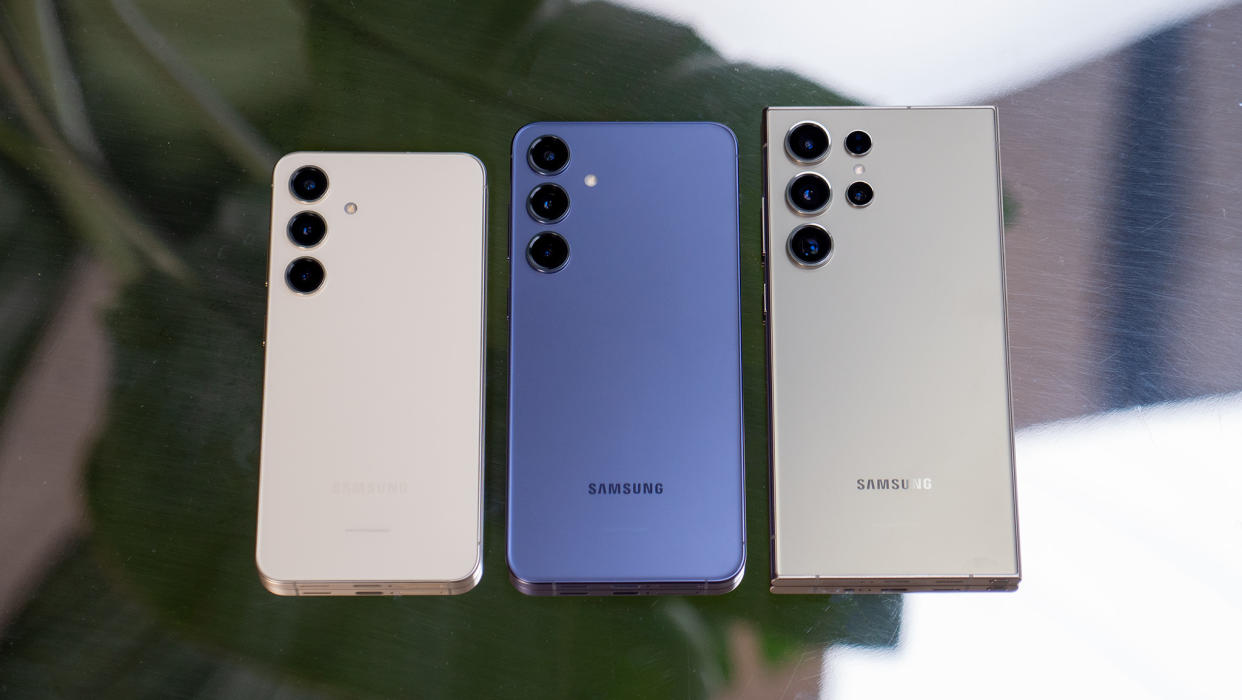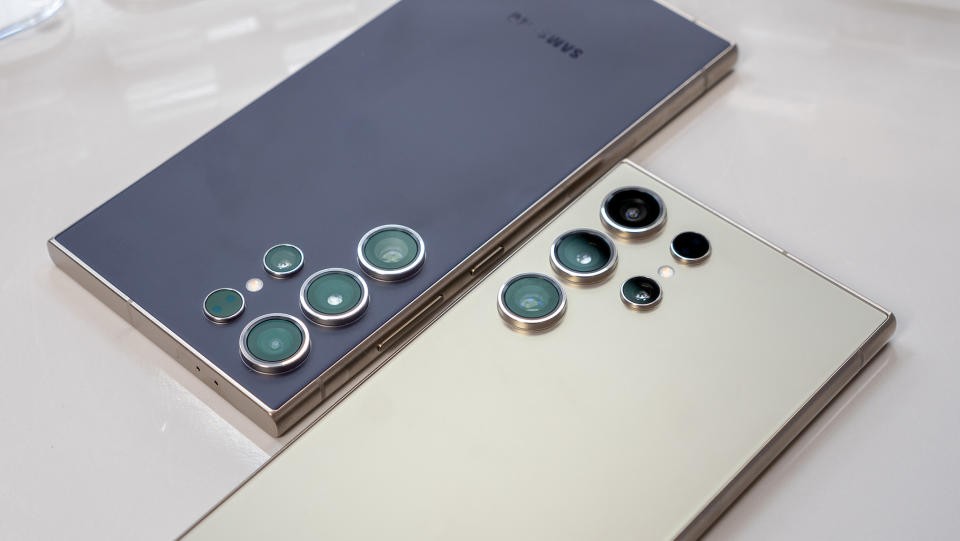I'm just not excited about the Galaxy S24 series

To no one's astonishment, AI took center stage at Samsung's Galaxy S24 series launch event. The Galaxy S24, S24+, and S24 Ultra usher in the age of Galaxy AI, with Samsung liberally throwing the buzzword around. What is missing is notable upgrades on the hardware front; the Galaxy S24 series has a few new changes, but there really isn't a groundbreaking new hardware feature that makes these phones stand out.
I know we're past the point where we get exciting upgrades year-on-year, but seeing as how last year's Galaxy S23 series was practically identical to the S22 portfolio, I was holding out for major hardware revisions this time around. That hasn't materialized, and the Galaxy S24 series is predictably boring.
Copy/paste hardware

Let's start with the Galaxy S24. The phone is indistinguishable from the S23 when it comes to the design, and the only changes are the inclusion of LTPO tech for the 120Hz panel and a slight 100mAh battery uptick that brings it to 4000mAh. You get the same cameras, connectivity, and charging tech as last year, and while the phone is powered by the Snapdragon 8 Gen 3, most global models feature the Exynos 2400 instead.
Hardwired

In Hardwired, AC Senior Editor Harish Jonnalagadda delves into all things hardware, including phones, storage servers, and routers.
The Galaxy S24+ is largely the same; other than an LTPO panel and a battery that's 200mAh larger, there is no tangible difference to last year's model, and global variants use Exynos. The Galaxy S24 Ultra is the one that got a bulk of the attention, with Samsung switching to a titanium chassis, a flat panel that's easier to use, and a new 50MP telephoto lens that now hits 5x optical zoom.
Apple justified the use of titanium as a way to meaningfully shave weight, and the iPhone 15 Pro Max is 19g lighter than its predecessor. You don't get the same weight savings on the S24 Ultra, with the phone just 2g lighter than the S23 Ultra while using the same 5000mAh battery.
While the new 50MP sounds interesting, Samsung didn't change the rest of the sensors, and that means the S24 Ultra isn't going to be markedly different to last year's model in most scenarios. In a year where OnePlus, OPPO, and Xiaomi have made significant gains in this area, Samsung may just end up being on the backfoot.
The worst part is that Samsung didn't fix long-standing issues with its cameras; the S23 Ultra wasn't great at taking photos of moving objects, and the S24 Ultra isn't much better either. The Pixel 8 Pro continues to be the best overall device at this, and I had a lot of luck with the OnePlus 12 recently.
Samsung hasn't made any changes to charging tech as well, and the S24/S24+ continue to charge at 25W while the S24 Ultra goes up to 45W. Most other Android phones reliably go up to 100W and beyond, and these standards have been around for a few years now, so we know there's no measurable difference in battery longevity against a slower-charging phone.
All the AI you (don't) need

Then there's Galaxy AI. Look, I don't care about AI — I don't need generative AI to edit images, I don't want instant translations when making phone calls, nor am I interested in getting a summary of my voice memos. Samsung is positioning AI as a key differentiator on the Galaxy S24 series, but the fact remains that most of these features rely on an internet connection — the queries are handled by Google's Gemini Pro AI models. Only the translation features and edit suggestions use on-device AI.
Because most of the AI features utilize Google's AI model, Samsung will start charging for their use at the end of 2025. Samsung hasn't detailed what these features will ultimately cost, but paying a monthly fee on top of what is already an exorbitant asking price just to access a few AI utilities is asinine. That's why it's refreshing to see the likes of the OnePlus 12 not jumping on the AI bandwagon.
If you're already using any of the devices in the Galaxy S23 series, it makes little sense to upgrade — Samsung will bring all of the flashy new AI features (and the subscription fees) to last year's devices via the One UI 6.1 update. I will agree that this is a good move by Samsung as it doesn't limit the availability of these features, but it also means there's even less reason to pick up this year's phones.
The Galaxy S24 series isn't bad by any measure; I just wanted Samsung to roll out meaningful camera and charging upgrades, and that isn't the case. I used Samsung flagships extensively over the course of the last two years, and while the software needs a bit of work (that deserves an article of its own), these are terrific devices that get a lot right. But with the rest of the field going above and beyond this year, I don't see myself switching to the Galaxy S24 Ultra anytime soon.
